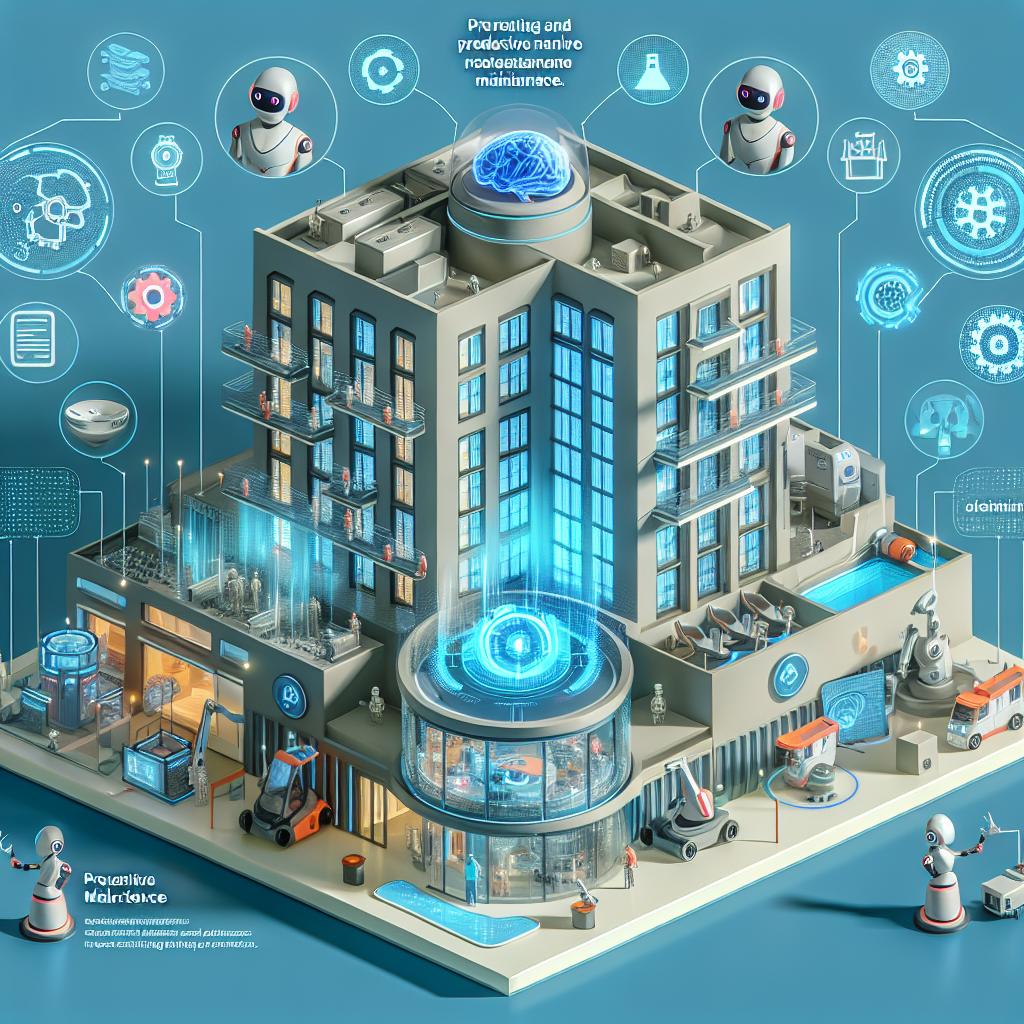In the hospitality industry, hotels rely on various equipment and facilities to ensure the comfort and satisfaction of their guests. From HVAC systems and elevators to kitchen appliances and lighting fixtures, these assets play a crucial role in the overall guest experience. However, just like any other equipment, hotel facilities and equipment require regular maintenance to ensure they are in optimal condition.
This is where predictive maintenance and preventive maintenance come into play. These maintenance strategies use advanced technologies, such as Artificial Intelligence (AI), to monitor the condition of equipment and predict when maintenance is needed. By implementing AI solutions for predictive maintenance and preventive maintenance, hotels can minimize downtime, reduce maintenance costs, and extend the lifespan of their assets.
Predictive Maintenance with AI
Predictive maintenance is a proactive maintenance strategy that uses data and analytics to predict when equipment is likely to fail. By analyzing equipment performance data, AI algorithms can identify patterns and anomalies that indicate a potential issue. This allows maintenance teams to address problems before they escalate and cause downtime.
AI solutions for predictive maintenance use various technologies, such as machine learning and Internet of Things (IoT) sensors, to collect and analyze data from equipment. These technologies can monitor factors such as temperature, vibration, and energy consumption to detect abnormalities and predict when maintenance is needed.
For example, an AI-powered HVAC system can analyze historical data on temperature and energy consumption to predict when a component is likely to fail. By identifying these issues in advance, maintenance teams can schedule repairs during off-peak times and prevent disruptions to guest comfort.
Preventive Maintenance with AI
Preventive maintenance is a scheduled maintenance strategy that involves performing routine inspections and repairs to prevent equipment failure. While traditional preventive maintenance schedules are based on manufacturer recommendations or time-based intervals, AI solutions can optimize these schedules based on actual equipment performance data.
AI solutions for preventive maintenance use predictive analytics to determine the optimal time for maintenance tasks. By analyzing historical data on equipment performance and failure rates, AI algorithms can calculate the probability of failure and recommend the most cost-effective maintenance schedule.
For example, an AI-powered kitchen appliance can monitor factors such as temperature, pressure, and usage patterns to predict when a component is likely to fail. Based on this data, the AI system can recommend the best time to perform maintenance tasks, such as replacing a worn-out component or cleaning a clogged filter.
Benefits of AI Solutions for Predictive Maintenance and Preventive Maintenance
Implementing AI solutions for predictive maintenance and preventive maintenance offers several benefits for hotels, including:
1. Reduced downtime: By predicting equipment failures in advance, hotels can schedule maintenance tasks during off-peak times to minimize disruptions to guest comfort.
2. Lower maintenance costs: AI solutions can optimize maintenance schedules and prioritize tasks based on equipment performance data, reducing unnecessary repairs and extending the lifespan of assets.
3. Improved guest satisfaction: By ensuring that hotel facilities and equipment are in optimal condition, hotels can provide a seamless and comfortable experience for guests.
4. Enhanced safety: AI solutions can detect potential safety hazards, such as faulty electrical wiring or leaking pipes, and alert maintenance teams to address these issues promptly.
5. Increased efficiency: By automating maintenance tasks and optimizing schedules, AI solutions can streamline maintenance operations and improve overall efficiency.
FAQs
Q: How does AI predict equipment failures?
A: AI algorithms analyze historical data on equipment performance, such as temperature, vibration, and energy consumption, to identify patterns and anomalies that indicate a potential issue. By detecting these abnormalities in advance, AI systems can predict when maintenance is needed.
Q: What types of equipment can benefit from AI-powered predictive maintenance?
A: AI solutions can be applied to a wide range of equipment, including HVAC systems, elevators, kitchen appliances, lighting fixtures, and more. By monitoring factors such as temperature, pressure, and usage patterns, AI algorithms can predict when a component is likely to fail and recommend maintenance tasks accordingly.
Q: How can hotels implement AI solutions for predictive maintenance and preventive maintenance?
A: Hotels can partner with AI technology providers or implement AI-powered maintenance software to monitor equipment performance and predict maintenance needs. By collecting and analyzing data from IoT sensors and other sources, AI solutions can optimize maintenance schedules and reduce downtime.
Q: What are the costs associated with implementing AI solutions for predictive maintenance and preventive maintenance?
A: The costs of implementing AI solutions for predictive maintenance and preventive maintenance vary depending on the size of the hotel and the complexity of the equipment. However, the benefits of reduced downtime, lower maintenance costs, and improved guest satisfaction typically outweigh the initial investment in AI technology.
In conclusion, AI solutions for predictive maintenance and preventive maintenance offer a proactive approach to managing hotel facilities and equipment. By leveraging advanced technologies such as machine learning and IoT sensors, hotels can predict equipment failures, optimize maintenance schedules, and improve overall efficiency. By implementing AI-powered maintenance strategies, hotels can enhance guest satisfaction, reduce maintenance costs, and ensure that their assets are in optimal condition.

